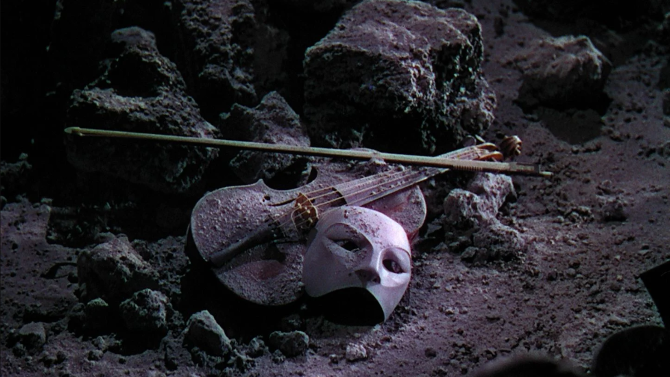
An Impossible Mission
How do you wrap up a franchise like Mission: Impossible? That is, if this even is the final installment... as they’ve made it sound (while at the same time, stars not named ‘Tom Cruise’ pipe up and suggest that might not be so). It has been twenty-nine years, with different writers and visionary directors – from twisty Brian De Palma and the action hair stylings of John Woo, to the lens flares of J.J. Abrams and animation expert Brad Bird, it was only about ten years ago that the franchise decided to opt for The Usual Suspects scribe Christopher McQuarrie for the final four. To return to that opening question once more, you could end with a Sopranos’ style cliffhanger, simply make another entertaining movie like the many before – like Everybody Loves Raymond did it with its final episode, or try to tie everything up in a neat little bow by bringing everything together as the Daniel Craig era did with James Bond. Well, it is definitely more along the lines of the latter example, with some distinct differences.
-

Missed the Bloody Cut: 2022 (Part 1)
September 20, 2022The first Missed the Bloody Cut horror selection of this 2022, here are some horror movies that did not meet my strict criteria (a rating of 7.0 or higher). . . but are still entertaining films (horror fanatics may enjoy) that do not deserve to be ignored like the drunken, scantily clad college girl wandering off into the woods after a bush party – and that they are definitely worth a watch (just maybe not several re-watches).
-

Phantom Threads
Phantom of the OperaSeptember 13, 2022Though definitely not the most iconic version of Gaston Leroux’s much loved horror romance novel, 1943's Phantom of the Opera is opulence personified. Directed by Arthur Lubin (the man behind so many classic comedies with Abbott and Costello. . . though he had already proven that he could do darker work with Lugosi and Karloff in 1940's Black Friday), the movie is actually filmed on the set constructed for the legendary Lon Chaney Sr. 1925 version. . . built to be completely identical to the actual Paris Opera House (a true masterpiece of set design). This version is shot in stunning Technicolor, every single hue popping to create an eye-catching pastiche. Paired with creative cinematography that at times reaches German Expressionism like chiaroscuro lighting (especially when filming the Phantom), this really is a treat to look at. It is then all pieced together with creative crane shots, intriguing static angles and so much more, a technical masterpiece that cannot be denied.
-

Giallo’s Island
Nine Guests for a CrimeSeptember 7, 2022Sometimes, a comparison just has to be made... and that is the case today with the 1977 giallo Nine Guests for a Crime, directed by Ferdinando Baldi (a film maker who was usually manning westerns or sword and sandal epics, with this being his only foray into the genre). It is also worth noting here that the movie has also been called Death Comes From the Past (in Spain), as well as having the alternate Italian title A Scream in the Night. So, their ship disappeared off the shores of this uncharted desert isle, with Greta (Rita Silva), the Skipper too (he dies too soon), the Millionaire Patriarch (Arthur Kennedy) and his much younger wife (Caroline Lawrence), the Soothsayer (Sofia Dionisio), the Professor of Truths (Dana Ghia), and Michele too (Massimo Foschi), here on Giallo’s Isle.
-

New Otherworldly Planetary Extraterrestrials
NopeAugust 24, 2022This is a tricky one to judge. Jordan Peele’s third writing/directorial effort, Nope (2022), is a highly creative and original concept that delves into the science fiction alien field... but is missing something to make it a truly effective effort. With its critics likely pointing to its title as an apt description, the word in fact references character reactions to some sort of alien craft seen in the sky. Though it still might have people pondering whether it means something else – perhaps, ‘Not of Planet Earth’, ‘Newly Ordained People Eaters’, or ‘Never Offer Predators Equines’. Set on a vast horse ranch in rural California, the Haywood family have been providing horses for Hollywood productions since day one (a cool reference back to the original moving picture – a galloping horse ridden by an African American jockey created by Eadweard Muybridge).
-

Bite the Bullet
Bullet TrainAugust 19, 2022Trying to find a playful voice somewhere between a Guy Ritchie gangster flick and Quentin Tarantino (primarily Kill Bill and Pulp Fiction), Bullet Train (2022), written by Zak Olkewicz (based upon Kōtarō Isaka’s novel “Maria Beetle”) and directed by David Leitch (Atomic Blonde; Deadpool 2), does miss from time to time, but it still packs quite the walloping punch. Getting the most out of its fantastic setting, Bullet Train is set on, you guessed it, a bullet train. A journey from Tokyo to the end of the line in Kyoto, there is no better location for a comedic tinged action thriller than on a stunning yet inescapable mode of transportation. Providing a claustrophobic, ultra dangerous environment for our protagonist, Ladybug (Brad Pitt), he is a last minute replacement for infamous hitman Carver – a surprising blink and you’ll miss it cameo I won’t spoil.
-

Chinese Takeout
Righting WrongsAugust 8, 2022Lawyer by day, vigilante martial artist by night. . . I know, maybe not the most expected combination, but when the courts stop working, sometimes you’ve got to take matters into your own hands. This is the general premise for 1986's Righting Wrongs (it is also known as Above the Law in some circles), directed by Corey Yuen. Hsia Ling-Cheng (Biao Yuen) is a by the books prosecutor who is about to have a rough couple of weeks. First, he is on hand to see his beloved mentor and former law school professor gunned down in New Zealand by relentless thugs attempting to keep a certain lawlessness on the streets (quite the opening scene); then, the key witness in his case, along with seven other family members, are assassinated and incinerated by a group of thugs who believe they are above the law.
